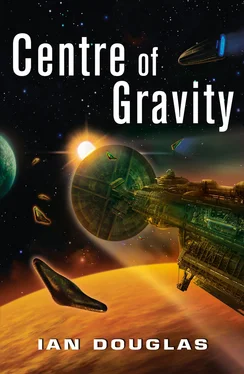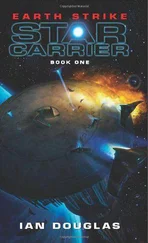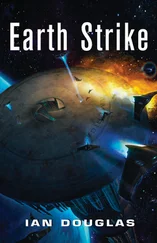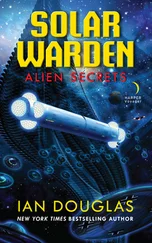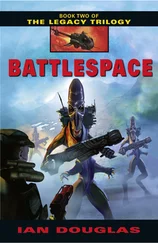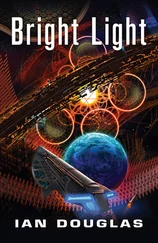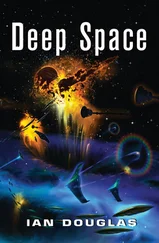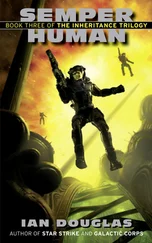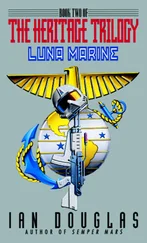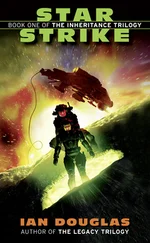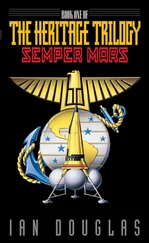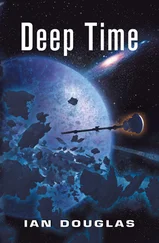1 ...6 7 8 10 11 12 ...22 Feeling steadier, Ordered Ascent relinked with the ship and their fellow H’rulka. “Can we be sure that this is the system to which the alien probe fled?” they asked.
“Yes, with a probability of eighty-six percent plus,” one of the others replied. “The shard that we followed almost certainly came here.”
Warship 432 had pursued the probe that had passed through System 783,451. The probe abruptly had split onto four pieces, four shards each independently powered, each traveling in a different direction.
The H’rulka ship had split into four sections as well in response. Warship 434 had followed one fragment, a difficult feat in the weirdly distorted continuum of faster-than-light travel, but possible given the power of certain Sh’daar instrumentation. The selected shard had dropped out of faster-than-light drive after some periods of travel, changed heading, and accelerated once more. The new path had brought it, and the pursuing All of Us, here .
“The system is known to the Sh’daar,” Pouncer reported. “They list it as System 784,857.”
Data streamed down the radio link through Directed Ascent’s consciousness. The inhabitants of this system were indeed native to the system debris.
Vermin …
The All of Us race was unaccustomed to dealing with other sentient species. One of the primary reasons for this was, simply, their size; by almost any standards, the H’rulka were giants.
An adult H’rulka consisted of a floatation gas bag measuring anywhere from two to three hundred meters across, with brain, locomotion and feeding organs, sensory apparatus and manipulators clustered at the bottom. Most other sentient species with which they’d had direct experience possessed roughly the same size and mass ratio to a H’rulka as an ant compared to a human.
When the H’rulka thought of other life forms as “vermin,” the thought was less insult than it was a statement of fact, at least as they perceived it. Within the complex biosphere of the H’rulka homeworld, there were parasites living on each All of Us colony that were some meters across. H’rulka simply found it difficult to imagine creatures as intelligent that were almost literally beneath their notice in terms of scale.
“Commence acceleration,” Ordered Ascent directed. “We will move into the region of heavy radio transmission, and destroy targets of opportunity as they present themselves.”
The H’rulka warship, more than twenty kilometers across, began falling toward Sol, the inner system, and Earth.
Palisades Eudaimonium
New York State, Earth
1750 hours, EST
Admiral Koenig looked out over the sea of people filling the Grand Concourse of the eudaimonium and wondered, again, just what he was supposed to be doing here.
He’d been the center of attention for a number of politicians and Confederation military leaders ever since arriving here an hour before, but there seemed to be no particular point to it, other than allowing wealthy or important civilians to get a sense of their own importance by being close to the Man Who Saved Earth.
What unmitigated bullshit.
He was standing on a railed platform high above the bowl-shaped main floor filling much of the Grand Concourse, along with a number of senators and high-ranking military officers, members of the Confederation Senate and of the Joint Chiefs of Staff.
John Quintanilla, a senior political liaison between the Senate and the military, stood next to him. “Well, Admiral?” Quintanilla asked. “Are you ready?”
“No,” Koenig told him. “But I don’t suppose that’s going to change things, is it?”
Quintanilla grinned. “Not in the least!”
The man seemed … animated. Koenig rarely got to see this side of Quintanilla. Usually, the liaison was, if not an enemy, exactly, at least in the way … obstructionistic, fussy, and difficult. Political liaisons were a necessity, Koenig supposed, a means for the civilian government to exercise their control over a potentially dangerous military, but he didn’t like it. For member-states of the Confederation with long traditions of having a military subject to government oversight—in particular the United States of North America—that tradition and a sense of duty alone was enough to guarantee the military’s loyalty to the government. Other members of the Confederation, though—the European Union, los Estados de las Americas del Sur, the Empire of Brazil, the North India Federation, and many of the extrasolar colonies—had long histories of having their militaries dictating in one way or another to their governments, hence the need for direct oversight of military operations.
Koenig had thrown Quintanilla off of his flag bridge once, an act that could have inflicted serious harm on Koenig’s career. Success , however, covered a multitude of sins. The incident had been quietly smoothed over and forgotten.
“The president’s about to start his speech,” Quintanilla told him. “You stand … here.” Quintanilla guided Koenig to a holographic transmission disk set into the floor. The disk was inactive, its light off.
“Ladies and gentlemen,” a voice boomed from somewhere overhead. “The President of the Confederation Senate!”
Accompanied by the powerful, martial beat of Ad Astra , the Confederation’s anthem, a glowing figure materialized in the air above the crowded bowl, an older man in a stylish formal robe, ten stories tall and eerily translucent.
“We are here,” the looming figure boomed in somber tones and without preamble, “to honor the Man Who Saved Earth. …”
The president’s speech went on for a long time.
Under the terms of the original Constitution of the United States, government had been divided three ways between a two-house legislative congress, a president, and a supreme court, each applying checks and balances against the others in order, it was hoped, to limit government and avoid tyranny. That system, ultimately, had failed with a succession of weak presidents and corrupt legislators. The devastation wreaked by the Wormwood asteroid strike 272 years before had shattered much of the old United States and very nearly ended the fragile experiment in democracy begun in 1776.
The Earth Confederation had been an attempt to create a single-world government and end the possibility that any single nation-state would ever again threaten another nation—or the entire human species—with extinction. The attempt had been only partly successful. The Chinese Hegemony, which had launched the asteroid strike in the first place, back at the end of the Second Sino-Western War, was still not a full member, and the Islamic Theocracy was barely tolerated, permitted to exist only under the terms of the earlier White Covenant at gunpoint.
The system creaked and tottered. There were no checks and balances now, and corruption was as much of a problem as it had ever been. A Confederation Senate oversaw both the legislative and executive processes of government, with numerous directorates handling individual areas of interest—lawmaking, the military, the economy, and others. The president of the Senate was largely a figurehead, elected by the Senate body once every ten years.
The current president of the Confederation Senate, now towering above the crowds filling the eudaimonium’s Grand Concourse, was a former representative of the European Union named Dolph Schneider.
“… for it is in times like these, times of crisis, that History herself steps forward and presents us with the man or the woman of the hour, the person who can and will confront the crisis and unite the people in their struggle against …”
Koenig listened with only half an ear, more aware of the inflection and meter of the speech than of the words themselves. He cared nothing for politics, and dismissed most political speeches as hand waving designed to justify decisions already made. But the outward form of democracy, of political debate and accountability, had to be preserved.
Читать дальше
